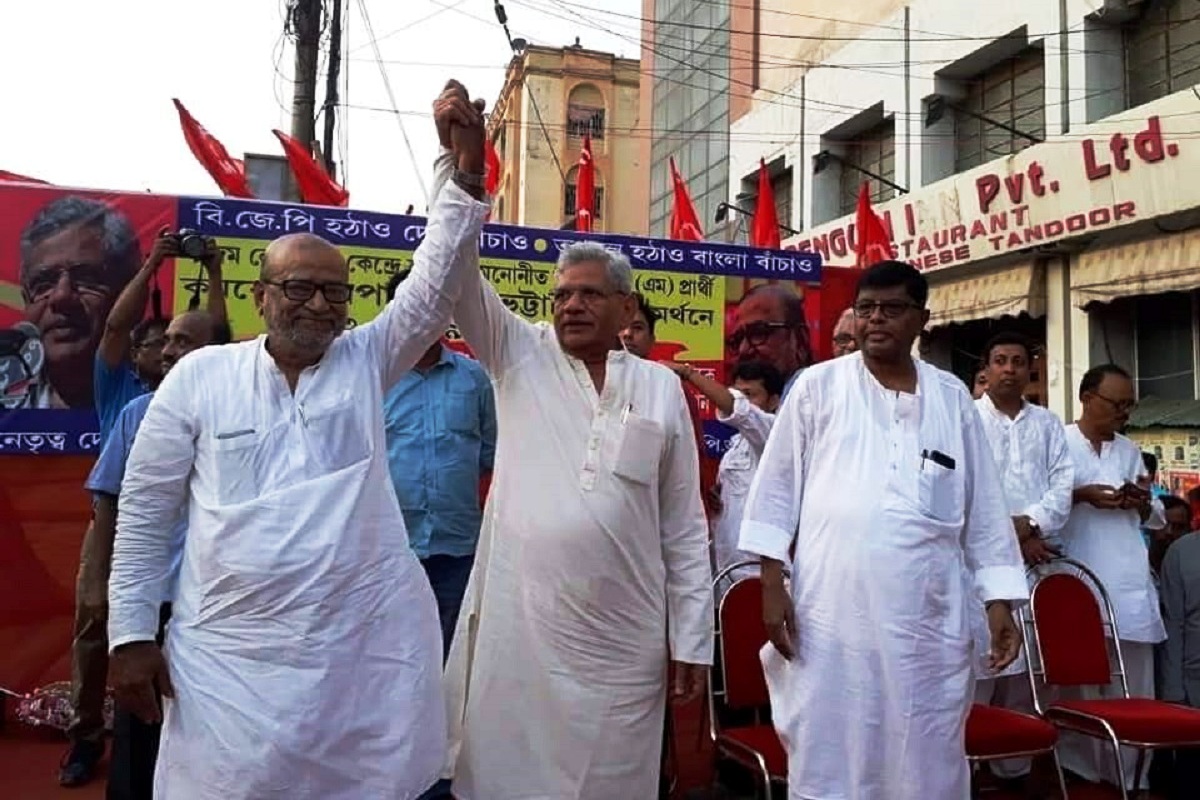Sitaram Yechury, Mamata Banerjee, Rahul Gandhi. It is the signal of intent to resign that binds the three leaders of the defeated parties.
It was only to be expected that their proposals would be turned down by their respective parties. In offering to step down, they may arguably have played to the gallery of a captive audience.
Advertisement
Yet the general secretary of the Communist Party of India (Marxist) has been quite the most forthright if his presentation at the Politburo meeting is any indication. Specifically, he has offered to take responsibility for the party’s debacle. If the failure has been collective, so too must be the responsibility. In marked contrast to the CPI-M leader, Miss Banerjee and to a lesser extent Mr Gandhi have been less than explicit in terms of personal responsibility. Mr Yechury hasn’t taken recourse to the concept of “collective responsibility” as a figleaf to evade personal accountability.
He has, however, let it be known that the responsibility lies with him as the “first among equals”. As it turns out, his suggestion was unanimously turned down by the party’s apex authority. Mr Yechury is known to be close to the Bengal lobby and in contrast to his predecessor, Prakash Karat, who draws strength from Kerala.
The trend of discussions at the Politburo meeting would suggest that the CPI-M is acutely aware that the praxis of putting in one’s papers can by itself scarcely shore up the image of the party. The party direly needs to advance a prognosis of its zero representation from West Bengal, where it was in power for 34 years, and its sole representation from Kerala, where it is still in power. The dichotomy ~ indeed the debacle despite being in office ~ urgently calls for an in-house investigation, however painful it may turn out to be.
In comparison, the two seats from Tamil Nadu is small beer. It is rather too simplistic to give Chief Minister Pinarayi Vijayan a clean chit for his handling of a decidedly emotive issue ~ gender parity at Sabarimala temple. The shrine has symbolised a sensitive cocktail of religion and gender. And it would be an exercise in obfuscation if the Left imagines that Sabarimala had little or no influence on the verdict at the hustings.
Yet a sense of realism still survives. It may be trying to be wise after the event when it admits that party “did not sense in time” that the BJP was using the issue as an “effective political tool”. The Politburo has not readily concurred with the Kerala unit’s diagnosis that there was a “minority consolidation” against the CPI-M. Mr Yechury’s nit-picking with the BJP’s campaign plank will not wash ~ “The BJP changed the narrative from jobs and livelihood to Pulwama, Balakot and also, of course, Narendra Modi.”
For all that, the question that is now uppermost is why has the CPI-M’s performance been so dismal in its only surviving bastion? In Bengal, it has been on the downhill road since 2011. Not so in Kerala, however. The party has somehow skirted the core issue.











